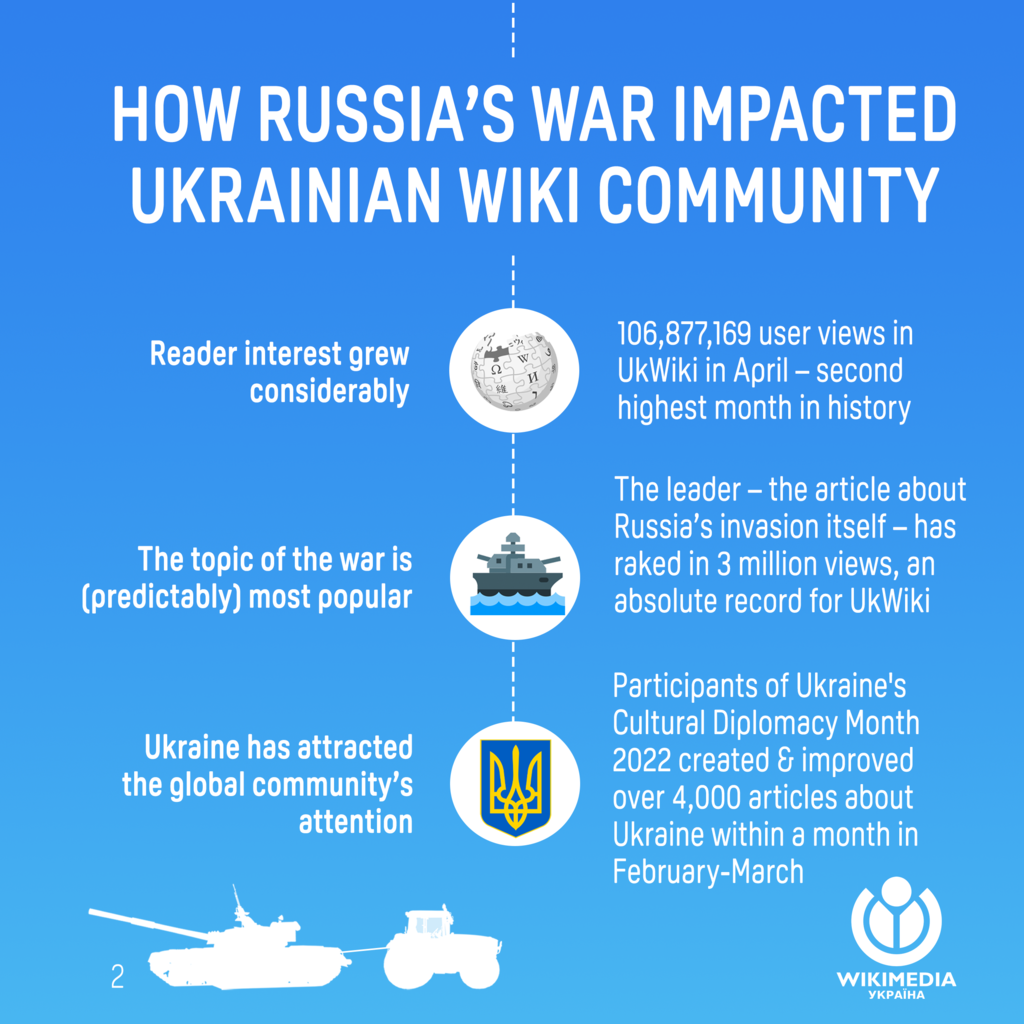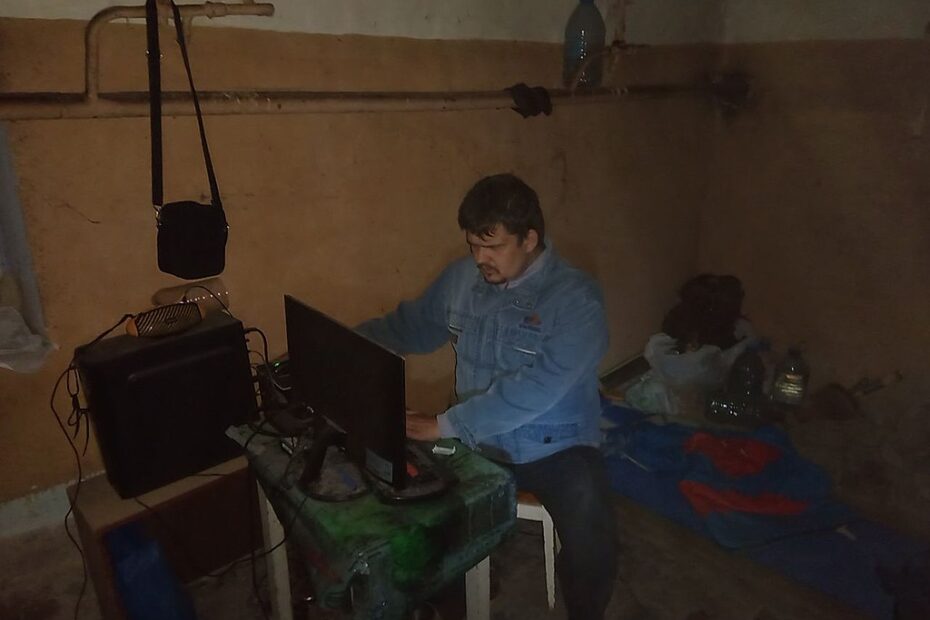For almost a year now, Russia has been waging a brutal all-out invasion of Ukraine. While the situation in Ukraine today isn’t easy, the most difficult period was the first four to six weeks of the invasion – when Ukraine’s capital was under assault, and many people across the world feared the country would fall to its larger enemy. But Ukraine withstood against the odds – and so did Ukrainian Wikipedia. How the Ukrainian community of Wikipedia volunteers remained resilient to challenges?
A crucial source of information
As Russia launched its full-scale invasion of Ukraine in February this year, millions of Ukrainians were desperately looking for information. People were trying to understand the war’s general context, but also looking up specific actionable information – from rules of crossing the border to recipes of a Molotov cocktail.
Along with news publishers and other sources of information, Wikipedia saw its popularity surge. In April, the Ukrainian-language edition of Wikipedia attracted 106,877,169 user views, its second highest month in history. The most popular article – about Russia’s invasion – raked in 3 million views in less than six months, an absolute record for UkWiki. (In case you were wondering, the Molotov cocktail article gained almost 140,000 views in February – twice as many as for the whole five years before).

The volunteer community during the war
Increased readership put a strain on the volunteer community supporting Ukrainian Wikipedia – at the very time when editing Wikipedia was the last thing on the mind for most of the volunteers, with people trying to establish their personal safety, take care of their children, and struggling to access the internet. As Ukrainian wikipedian Mykola Kozlenko succinctly summarized it at the time, “editing Wikipedia from a bomb shelter is difficult”.
User activity on Ukrainian Wikipedia decreased sharply at the beginning of the full-scale war – 108,237 user edits in March represented a 40% decrease year-over-year. By early June, 68% of Wikimedia Ukraine members surveyed reported their activity had decreased since the all-out invasion. The situation became better over the summer but worsens again with widespread power blackouts.
That said, the community has been more resilient than one might have feared. I would attribute it to several factors.
- First, many people have continued to volunteer for Wikipedia while in wartorn Ukraine as a way to be useful and keep mental sanity. To offer myself as an example – I was working on supporting the community since the first days of the war while staying in Ukraine; occasionally creating an article on a remote topic like the newest US Supreme Court justice was quite a useful way to take my mind off things.
- Second, Ukrainians living abroad doubled down on their activity. For instance, even the article about Russia’s invasion of Ukraine itself was created in its first moments by a Ukrainian who was studying in Poland at the time.
- Third, many avenues of coordinated response emerged – more about them below.
Some of the coordinated responses have included:
- Fast-tracked decision making among the volunteer community in Ukrainian Wikipedia. For example, in the first days of the full-scale war the community adopted a practice of “temporary administrators” appointed under a very simplified procedure to save the community time and be able to quickly receive reinforcement in the fight against destructive activity.
- Support from the international volunteer community. For example, Ukrainian Wikipedia enabled the possibility for global administrators to help fight destructive edits, something that’s not the case in the language editions of UkWiki’s scale in normal times.
- Institutional support. Multiple organizations of the movement provided their support, including the Wikimedia Foundation (overall support and funding, tech maintenance), Wikimedia Ukraine (working with specific community members to help with specific needs), other Wikimedia organizations from Europe & beyond (helping with relocation of wikimedians from Ukraine).
The upshot
Despite all the challenges, the Ukrainian Wikipedia withstood – and didn’t fall victim to rampant misinformation.
Existing structures and barriers, community resilience, institutional support have helped keep Ukrainian Wikipedia up and running. Successful destructive edits, vandalism and misinformation haven’t seen a noticeable increase as compared to the pre-war period.
That said, long-term challenges remain. Now that we’re in the war of attrition, and Russia’s deliberate targeting of Ukrainian civilian infrastructure is plunging Ukrainian cities in literal darkness (and lack of internet connectivity), people have a lot of difficulties just going about their daily lives, but especially conducting such volunteer work as editing Wikipedia.
The community of Wikipedia volunteers is a sample of the broader society – so the best way to help is to arm and fund Ukraine as a whole.
Further reading
- Global response to the 2022 Russian invasion of Ukraine
- Stories of Ukrainian Wikimedians during the war
The blogpost is based on Anton’s presentation during the event “A Citizens’ Struggle: combatting disinformation by self-organised online communities” hosted by MEP Marcel Kolaja and Wikimedia Europe at the European Parliament on December 1, 2022
Anton Protsiuk is Programs Coordinator at Wikimedia Ukraine. In his volunteer capacity, he has been a Ukrainian Wikipedia editor and administrator for a decade now. Anton is also editor of The Fix Media, a publication about the European media industry where he recently covered a new report on disinformation on Wikipedia.









